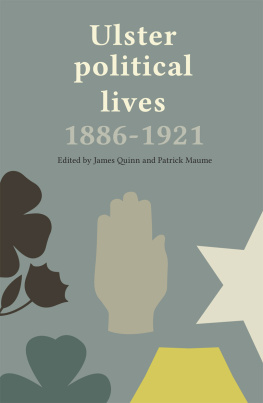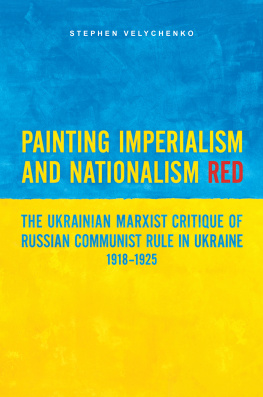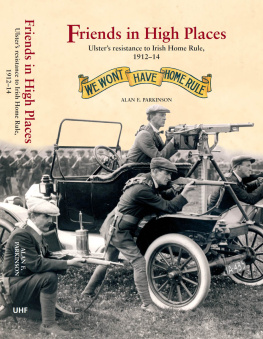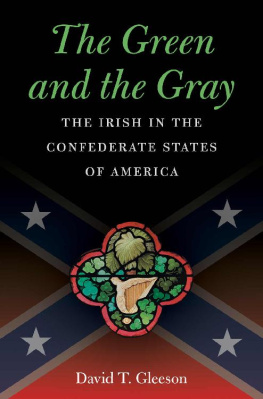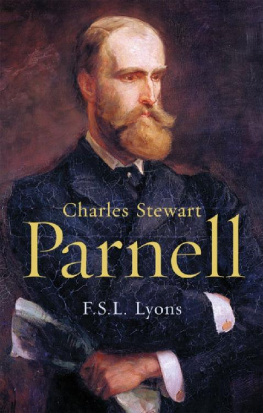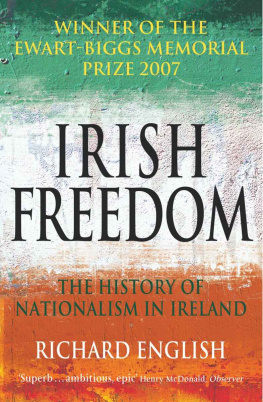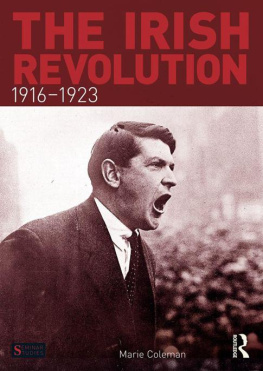SEMINAR STUFIES IN HISTORY
Editor: Patrick Richardson
Home Rule and the Irish Question
Grenfell Morton
First published 1980 by Longman Group Limited
Tenth impression 1992
Published 2013 by Routledge
2 Park Square, Milton Park, Abingdon, Oxon OX14 4RN
711 Third Avenue, New York, NY 10017, USA
Routledge is an imprintaf the Taylor & Francis Group, an infarma business
Copyright 1980, Taylor & Francis.
All rights reserved. No part of this book may be reprinted or reproduced or utilised in any form or by any clectronic, mechanical, or other means, now known or hereafter invented, including photocopying and recording, or in any information storage or retrieval system, without permission in writing from the publishers.
Notices
Knowledge and best practice in this field are constantly changing. As new research and experience broaden our understanding, changes in research methods, professional practices, or medical treatment may become necessary.
Practitioners and researchers must always rely on their own experience and knowledge in evaluating and using any inforrnation, methods, compounds, or experiments described herein. In using such information or methods they should be mindful of their own safetyand the safety of others, including parties for whom they have a professional responsibility.
To the fullest extent of the law, neither the Publisher nor the authors, contributors, or editors, assurne any liability for any injury and/or damage to persons or property as a matter of products liability, negligence or otherwise, or from any use or operation of any methods, products, instructions, or ideas contained in the material herein.
ISBN 13: 978-0-582-35215-5 (pbk)
Set in 10/11 Press Roman, IBM
Contents
MAP
Unionist constituencies in Ulster, 1911
The seminar method of teaching is being used increasingly. It is a way of learning in smaller groups through discussion, designed both to get away from and to supplement the basic lecture techniques. To be successful, the members of a seminar must be informed or else, in the unkind phrase of a cynic it can be a pooling of ignorance. The chapter in the textbook of English or European history by its nature cannot provide material in this depth, but at the same time the full academic work may be too long and perhaps too advanced.
For this reason we have invited practising teachers to contribute short studies on specialised aspects of British and European history with these special needs in mind. For this series the authors have been asked to provide, in addition to their basic analysis, a full selection of documentary material of all kinds and an up-to-date and comprehensive bibliography. Both these sections are referred to in the text, but it is hoped that they will prove to be valuable teaching and learning aids in themselves.
Note on the System of References
A bold number in round brackets (5) in the text refers the reader to the corresponding entry in the Bibliography section at the end of the book.
A bold number in square brackets, preceded by doc [] refers the reader to the corresponding items in the section of Documents, which follows the main text.
PATRICK RICHARDSON
General Editor
I should like to express my grateful thanks to the students in my adult classes in The Queen's University, Belfast, and in Lisburn, Dungannon, Bangor, Holywood and Armagh, all of whom listened patiently and whose critical appraisals of the complexity of modern Irish history helped my own comprehension of the subject. I should also like to thank my colleagues who have so generously shared their knowledge of modern Ireland: Dr John Whyte, Professor David Harkness, Dr Con O'Leary, Professor R.J. Lawrence, Dr A.T.Q. Stewart, Professor J.C. Beckett, Rev. Professor R.F.G. Holmes, Mrs Deirdre Flanagan, and Mr Noel Mitchel who kindly read the manuscript. I am also greatly indebted to the late Dr Brian Kennedy, to the late J.K.C. Armour, of Campbell College, to Mr D.A. Lyttle and to Mr J. Magee, of St. Joseph's College of Education.
As always an author's life is made pleasant by the kindly and courteous staffs of the Public Record Office of Northern Ireland, the National Library of Ireland, the Library of The Queen's University, Belfast, and the Linenhall Library, Belfast.
Finally, I worked under the inspiring memory of my Father, the late Rev. Benjamin Brooke Morton, H.C.F., and sustained by the loyalty and forbearance of my wife and children who had to live with this book for so long!
GRENFELL MORTON
Department of Extra Mural Studies
The Queen's University of Belfast
We are indebted to Her Majesty's Stationery Office for permission to reproduce extracts and a map from Irish Unionism 18851923 (HMSO Belfast 1973) by P. Buckland, reproduced with the permission of the Controller of Her Majesty's Stationery Office.
The cartoon on the cover is reproduced by permission of the National Library of Ireland, Dublin.
I shall not make the Italians a subject race to the Trojans, Nor do I seek this realm for my own: let both our peoples, Unconquered, as equal partners be joined in a league for ever.
Virgil, Aeneid xii, 18991, translated by Cecil Day Lewis
The Act of Union in 1800, by which the United Kingdom of Great Britain and Ireland was established, brought to an end the historic Kingdom of Ireland established by Henry VIII in 1534. It also terminated the long-standing institution of an Irish parliament, a body originating in the medieval Lordship of Ireland in the thirteenth century. Even though the Irish parliament represented the lords and communities of the Pale, and those areas which accepted English law, yet a distinctive tradition evolved, not unlike that of the Three Estaits in Scotland. Indeed, by 1494, Henry VII's Lord Deputy, Sir Edward Poynings, was forced to curb the growing independence of the Irish parliament by bringing proposed legislation under the joint control of the Irish and English Privy Councils.
Under the Tudor monarchs parliament, although seldom summoned, remained an essential part of the constitution, so that when the parallel process of plantation in Ulster, Virginia and New England began, it was as natural for James I to strengthen the Irish parliament by the creation of new boroughs as it was for the House of Burgesses to arise in Virginia (). The Glorious Revolution at the end of the seventeenth century established civil and religious liberty in England, but made people in both Ireland and the American colonies more aware of their subordinate status. William Penn's proposal for colonial unity in 1697 was mirrored in Ireland by the publication in 1698 of William Molyneux's pamphlet The Case of Ireland being bound by Acts of Parliament in England, stated, in which he condemned the undermining of the Irish parliament's authority by a series of English legislative encroachments.
The union of the English and Scottish parliaments in 1707 provided a striking parallel with the later measure of 1800. The Scots parliament, meeting in Edinburgh, came to an end amidst widespread opposition, riots in the capital and corruption of the nobility. Henceforward Scottish ).
Daniel Defoe, in his History of the Scotch Union, argued in favour of a further union of Great Britain and Ireland, and in July 1707 there was a current of opinion in the House of Commons which favoured a more comprehensive union. However, political ineptitude and commercial jealousy combined to thwart this statesmanlike course, a design which stood as good a chance of ultimate success as did the union with Scotland, a union which required to be sealed and consolidated in the bloody suppression of the Jacobite Highlanders in 17456. Instead, Ireland suffered the indignity of being subjected to the Declaratory Act 1719 (6 Geo. I), by which the legislative supremacy of the English parliament was affirmed, particularly in the matter of being able to legislate directly for Ireland. Significantly, an Act couched in similar terms was passed in 1766 to affirm the supremacy of Westminster over the colonial assemblies in America. The Protestant ruling class in Ireland resented their kingdom and its parliament being placed on a par with some remote colonial dependency, and their increasing resentment was brilliantly expressed by Jonathan Swift, the Tory pamphleteer who had toppled Marlborough and who now occupied the Deanery of St Patrick's cathedral in Dublin. Beginning with an attack on the commercial restrictions imposed on Ireland, Swift in his



